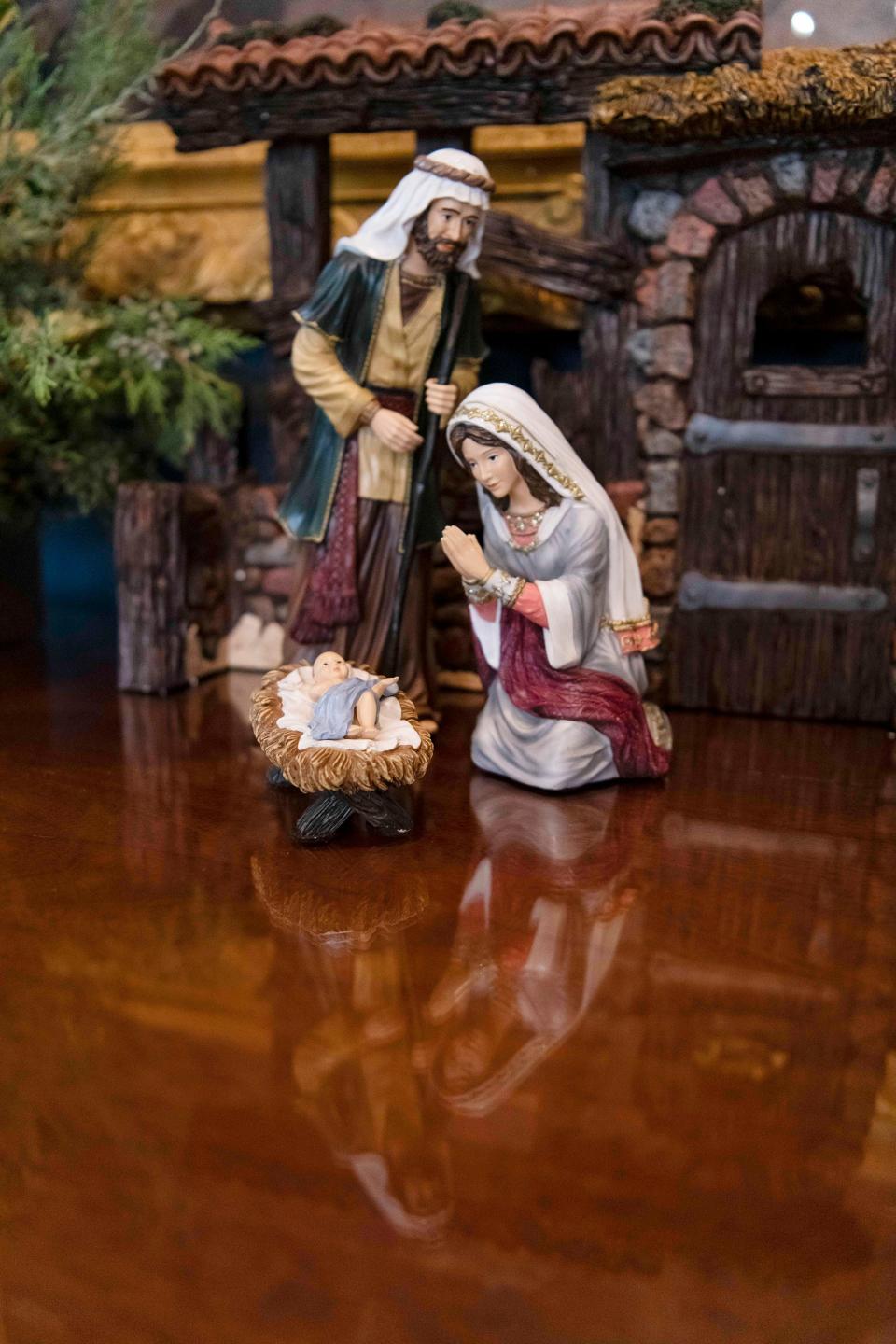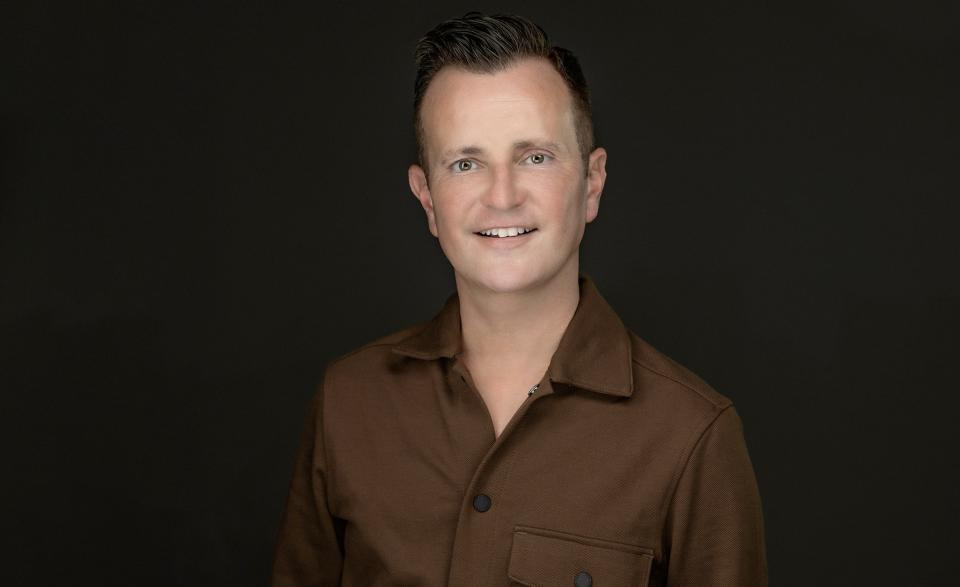I'm a gay, celibate pastor of a conservative church. Here's a trick for de-escalation.
For many, this year is the first holiday family get-together since before COVID-19. You skipped last year. A pandemic makes such a wonderful excuse. But this year, you have to go.
Nearly every family has someone that people secretly hope doesn't come home for the holidays. You know who they are. No one will admit it, but you’re ashamed of them. Embarrassed. They make your skin crawl. You cringe at their inappropriate jokes. Their pontificating.
So you try to brainstorm. How can I spend at least one hour with these people before having to leave when my prearranged emergency phone call comes through – the one requiring my sad but necessary departure?
But what if you're the one whom family members hope won't come? I know a thing or two about that.

I'm just a gay atheist kid who fell in love with Jesus in college and ended up the lead pastor of a historic Presbyterian church in one of America's most conservative evangelical denominations. Like 698,000 other adults in America, I tried to change my sexual orientation over the years. Of course, it never changed.
Opinions in your inbox: Get a digest of our takes on current events every day
You can imagine how fun denominational gatherings can be. Me with a couple thousand mostly older white, churchgoing, Southern, heterosexual religious conservatives with children and grandchildren and seersucker suits. One of us is not like the others.
Difficulty in the family
And while you might be forgiven for assuming that my willing celibacy and lifetime of sexual sobriety might make me acceptable in such conservative religious spaces, it’s not always so. I’ve been investigated by church authorities, both formally and informally, because of my sexual orientation.
I've found myself at times curled up in a ball on my office floor weeping. For one particularly painful six-month stretch, I wept every day. Often tears of sorrow. But often tears of joy as I sensed my Savior's compassion for me, even in the midst of my sorrow.
Navigating gender roles for kids: What to do when your son wants to be a princess for Halloween. (Hint: Have fun!)
After a recent investigation, I was exonerated in January 2020. Then exonerated again. Finally, this October, our denominational supreme court cleared me.
That ruling can't be appealed. So I kid you not, my critics are now trying to change our denominational constitution to get rid of me, barring from ministry anyone who is honest about not being heterosexual.
Even 49-year-old virgins who are saving themselves for Jesus.
Navigating uninviting spaces
Yes. Gatherings with the spiritual family – at least at the denominational level – are awkward for me right now. So how can we stay even briefly in a space that feels so uninviting?
Certainly, for many of us, where families have become places of abuse, it may not be an option. There is a time to leave. But when speaking about family members who merely annoy you, how do you make it?
How can we accept our family members without demanding that they change and think like we do?
Here’s how I'm getting through:
USA TODAY's David Mastio: Trans bathroom policy is ripping my community apart. Parents should do better for our kids.
First, there are some wonderful anti-anxiety drugs on the market. If you struggle with anxiety or depression, speak with a professional. Seriously.
Second, make sure you have backup. You know, someone who will stay with you so no one corners you alone.
Third, know how to change the subject when a family member starts arming for battle. Find something you can affirm, and then redirect. “Well, Uncle Vern, while my perspective on justice differs, I do appreciate the way you so value individual responsibility. Now Grandma, I would love to hear how you and Grandpa met!” Or, “While my perspective on sexual-orientation change efforts might differ, Reverend, I do appreciate your concern about fidelity to biblical sexual ethics. Now Brother, how's the barbecue in Milwaukee?”
Those are basics.
For me, though, there's a deeper resource.

Even though I may very well be pushed out of my denominational family in the coming months, I still feel a burden to love these people. They are family to me. They are the church that baptized me as a young convert in college. They taught me. They sent me to seminary. They trained me and ordained me. They have been my support through decades of challenges.
How can I love family members who seem at times so blind to their own failings? To their own insensitivity? When they seem to be making bad decisions motivated by fear and suspicion? When they don't think I belong?
Moving forward with love
Here I go back to the first things of the religion of Christ. I believe God made me in his image. But I believe that the world isn't as God designed it. Unlike our first parents, we all start our lives outside the garden. We're all defective. We're so much less than the best of humanity. And our biggest danger is our own self-righteousness. Spiritually, religious people can be the most at risk.
When I look at Jesus, I know he sees me as I am. Sometimes filled with love. And sometimes insecure. Other times proud. Or impatient. Or flat-out disobedient. Or unaware of how my words can land on vulnerable people. He sees my failings. And as he looks on me, his face is filled with tenderness and compassion. He stooped down to become a human to rescue me. He took the blame for my sin on a cross. And he did it because he loves me. As a sinner, I rest in the reality that sinners are the only class of people Jesus came to save. He was called a friend not of the self-righteous but of sinners.
The fact is that I do things that annoy God every day, and he keeps loving me. He sees me all the way down and still wants to be in relationship with me. That's the miracle whose birth Christians celebrate at Christmas.
That experience of being lovingly embraced by Jesus despite my failings leaves me with no moral high ground from which to judge anyone else. I can disagree. I can have a different perspective. I can think they’re wrong about important matters. But I can never be superior to them. I am not standing above them as their boss. I am beneath them as their helper. I can let them have the last word. I can forgive them when they hurt me. I can pray for them.
While there is a time to leave, I can move forward and love in spite of it all. Because that's what Jesus is doing for me.
Greg Johnson, lead pastor of Memorial Presbyterian Church (PCA) in St. Louis, is author of "Still Time to Care: What We Can Learn from the Church’s Failed Attempt to Cure Homosexuality."
You can read diverse opinions from our Board of Contributors and other writers on the Opinion front page, on Twitter @usatodayopinion and in our daily Opinion newsletter. To respond to a column, submit a comment to letters@usatoday.com.
This article originally appeared on USA TODAY: Family holidays: Face difficult people with God's patience, compassion
